 Evan Gregory’s post about the future of publishing made me think — about fan fiction.
Evan Gregory’s post about the future of publishing made me think — about fan fiction.
Suppose I wake up one morning thinking I’d really like to read a story. I want this story to have talking animals in it, and no sex scenes. I want it to have a lyrical view of the countryside, happy endings, not much violence and a generally cheerful mood.
Well, you might say, read The Wind in the Willows. Nope; I’ve read that, and all the knock-offs. I’ve read Redwall. Where will I look for the next best thing?
Up until the Harry Potter books turned me on to fan fiction based on books, I would have gone to the library and browsed at random. But now I know that I can go straight to fanfiction.net, and there I will find millions of free stories, unvetted by publishers or agents. There appear to be no constraints on quality or content — in short, this is the unruly wild west of self-publishing, from which publishers and slushpile readers are supposed to be protecting us by serving as gatekeepers and guarantors of at least a minimum level of coherence and decency. Am I not plunging myself into a morass of the 90% that is crap? Will I not spend hours reading through dreck in order to find one story I like?
Well — not so much. Because fanfiction.net is ORGANIZED. It has replaced quality constraints with categorization constraints. Sure, there are 1,735 Redwall fanfics on the site, and I’m sure a lot of them are rubbish, by my standards. But completed, K-T rated, friendship-focused Redwall fics? There are twelve.
It took me less than a minute, in other words, to find twelve stories that meet at least three of my criteria. How long would it have taken me, if I went through a library? A bookstore? A publisher’s website? Just for fun, I tried my criteria as a tagmash on LibraryThing. I got over 1500 matches for fiction and talking animals, which was a little overwhelming, but still better than what I would have found at my local Barnes and Noble. And how else would I have heard about Island of the Sequined Love Nun?
For my money, the new gatekeepers of the fiction universe are the indexing and recommendation sites. When they’re well put together, they give readers information that is a lot more important to them than the fact that an editor at a publishing house thought a book was good enough to see print. At LibraryThing, I could find out about book content. But fanfiction.net has been at this a long time, and for my money they know more about what readers want to find — is it angsty or humorous? Which characters are featured? Will it bring a blush of shame to the cheek of modesty? With a sufficiently well-designed search engine, I no longer need a publishing establishment to protect me from an avalanche of bad books, any more than I need a gatekeeper to protect me from bad websites.
The book publishing world could do a lot worse than look seriously at what fan fictioneers have built for themselves, because it may be the future of publishing — and a lot of people who make their livings from the current model may be squeezed out, unless they do some hard thinking about how they fit into the new model.

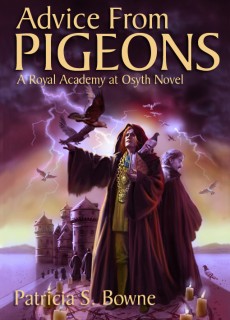
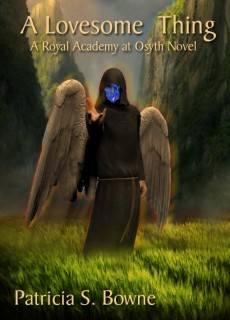
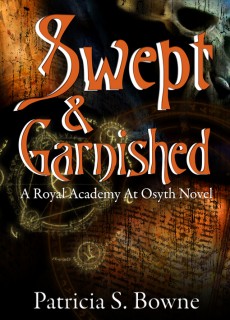
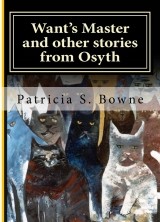
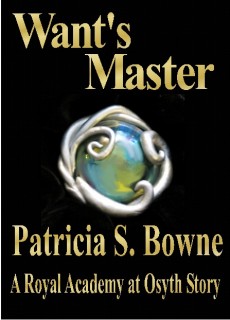
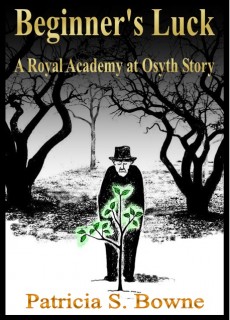
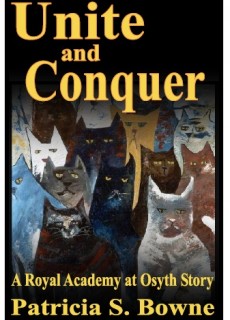
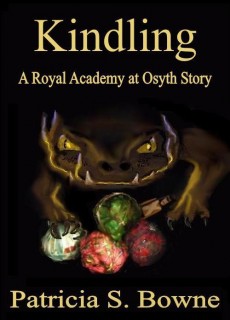
I agree that indexing is an important aspect of it, but I’d bet money that once money’s involved, Fanfic.net would collapse. That’s a labor of volunteer love. They don’t pay people to index, nor is there any mechanism I’m aware of to standardize it. If you want to make it a commercial enterprise, you’d need to pay people to, in essence, index your slush. You’d also want to remove opportunities for people to “game” your ratings, or (as happens on FF.net) steal your stuff and label it under your own.
And of course the indexing doesn’t solve the real problem: how do I find a GOOD story to read? Fanfic.net takes pretty much anything. And while it’s easy to search for “Harry Potter and Chrono Trigger” crossovers, how would you expect to find (for example) my own Grand Central Arena?
Fanfic has a huge built-in indexing advantage: keywords which themselves are TREMENDOUSLY limiting and focused. Just ONE fandom included in the description whittles the possible choices down from MILLIONS to a large but countable number in most cases, and sometimes to an even PRACTICALLY countable number. There aren’t any such available for the general description of fiction. If you add in the floodgates of slush, what indexing scheme can you imagine which would cut down the morass of sludge into, say, 10-12 books which would unerringly include the ones you’d like to read?
Well, you’re right that fanfic has an advantage in that their works are already categorized by fandom. The fandom also gives them the ‘character’ categories they rely on. But even given that advantage, I think there’s a lot to be learned from their system of organization – and even their existence. Fanfiction.net represents a categorization system put together, as you note, by the readers themselves, as a labor of love, and as such I think it indicates what categories the readers care about. They want to know the book’s tone and mood, how long it is, how much sex and violence it contains. ‘An editor thought it would make a lot of money’ is nowhere in the list. Neither is ‘it’s GOOD,’ which I’m afraid indicates that readers don’t care that much whether it is good or not.
And truthfully, I don’t care as much about that myself as I used to think. I’ve officially given up on trying to keep up with GOOD literature, because I liked so little of it. I’d rather read Victorian potboilers.
I think it’s very probable that bookbloggers and recommendation sites like LibraryThing will come to fill the same niche in non-fan fiction that FanFiction.net fills for the fanfic. Readers want and need this sort of information, and if publishers can’t be arsed to provide it readers will take care of themselves. The job of reading the slushpile will be crowdsourced.
I think the best way for publishers to get in ahead of the game is to apply a detailed indexing system to the books they publish, and to do it first. If I have a choice of buying a random book published by Lippincott, based on the cover art and blurb, or doing a detailed search of Random House’s online index to find the happy talking animal story with no sex that I wanted, Random House will sell me more books.
You misunderstand me when you say “GOOD” and mention literary standards. I mean GOOD as in “fun to read”. Which excludes 99% of fanfic as well as 99% of published work.
Without the highly specific sorting capabilities of the fandom (and additional specificity of characters), which can be used to cut the 20 million down to 20 fairly quickly, you’re in for a world of pain if you want to find something GOOD to read. Editors don’t say “I think this will sell” in a vacuum. Their selection is, in essence, sorting that book into many of your proposed categories, just implicit. “Stuff that fits in X genre, stuff that’s properly edited and doesn’t hurty my eyes, stuff by people who know how to carry a plot” are pretty important categories to me, and that’s at least some of the categories “Editor from major publishing house chose this” encompasses.
If you ASSUME the existence of the publishers first, and then want the reviewers to be the categorizers, sure, I’ll agree that this approach would improve things.
But it won’t work for the generic internet release for several reasons, not the least of them being that the generic releases don’t have any of the key refining search terms, and don’t have dedicated readers. I’m a published author, so I have some significant advantages in that I can, in fact, expect some people to read my books. But if I wasn’t? If I’m Joe Author putting my stuff on the internet? None of those bookblogs or review sites know of me, they’re not going to go look for me. They’ll be inundated with a billion Joes, and it’ll be sheer random chance for THIS Joe to get even READ, let alone blogged about.
But in the early days of fanfic, it didn’t have the key identifiers either. I’m suggesting that regular fic *should* have them, and that if reviewers insist on using them, authors *will* use them in order to get reviewed – and then minor authors will have greater chances of getting reviewed, because their books will be starting out of the gate with markers that distinguish them from the other 10,000 books self-published in the last month.
And wouldn’t your argument apply equally to websites and the difficulty of finding something good to read on a website? There’s no quality control at all on websites, yet I have no difficulty at all finding good stuff there, because of search engines.
A few thoughts. I started in fanfic in 1980. I had written it in the late-’60s to early-’70s, but I didn’t know that’s what it was and I didn’t discover zines til 1980, when I got stories published in zines and a couple of years later, I was publishing zines. This was pre-internet. This was when there was still the “circuit” for Man from UNCLE slash (people mailing the stories among themselves in a circuit til they got back to the author). Zines were either show-specific or movie-specific or media anthologies. Some media zines collected similar shows (cops, detectives, sff, whatever). There were even literary fanzines, but the only ones I remember were for Sherlock Holmes. The internet and fanfic.net really changed the rules. I’ve never used fanfic.net either as a reader or writer.
I’ve read a lot of drek, but I learned which editors had the best zines (because they had standards!) and which writers wrote good stories (and many are now published writers, including one SF writer who wrote a wonderful story for one of my zines that combined characters with Vietnam War experience from at least 4 shows).
Tagging and recs are one of the best ways to find what you want to read. Libraries do booklists, including the “If you like XXX, why not try YYY” or, “While you’re waiting for the next book in the XXX series, why not read YYY” variety. Bookstores do displays and group books to make them findable/discoverable. Libraries have to work harder because fiction tends to be by author on the shelves and breaking out by genre remains a hotly contested issue. I love discovering books to read. I like picking up a book from the “new books” table or shelves and skimming and reading the blurbs and thinking, yes, I’ll try this! I go by reviews and recs, too.
Publishers play games with genre, mainstreaming a lot to try to get a book a wider audience. How well that works, I don’t know, but there’s a hard balancing act between people who like to stumble across good reads and those looking for specific things in what they feel like reading. One reason I buy a LOT of books is so that I can choose by what I’m in the mood for whenever I’m ready for the next thing to read.
I think publishers can do more, and I think they need to work more with libraries and other sources of getting books to readers. The limiting of circs for HarperCollins ebooks through libraries is NOT the way to go about it, because libraries remain a big way people discover books. Libraries are getting with the ebook phenomenon, and I wish publishers would realize this is a good thing.
I veered off topic, as usual. Fanfic, ebooks, tagging, classification, promotion, reviews, recs, etc. All are ways to help people find or discover books.
I couldn’t agree more – limiting circulation of ebooks is a bad idea. What library will bother buying them? However, if it’s just HarperCollins how much of an effect will it have?
I suppose I can’t blame the publishers, because if I were in their place I would be in panic mode too. But panicking in the face of the internet is probably about as sensible as panicking in the face of a wave when you’re surfing.
A lot of libraries are boycotting HarperCollins. We’ll have to wait to see if that works. I remember years ago, probably in the early-’90s, when library budgets got so bad (and the bad economy is causing a repeat now) we couldn’t afford many new books. Publishers were squawking about giving library discounts and finally, cooler heads prevailed. It was pointed out that libraries buy a LOT of books when they have the money and with the discounts (typically 4o per cent, I think), they can buy even more. For many titles, especially in hardcover, that can really make or break a book that won’t sell well directly to the public, ie university presses, small presses, almost anything that won’t make a bestseller list.
Even with popular books, the library trade can really account for a large part of hardcover sales. Not everyone can afford, say, a Harry Potter hardcover, but my library system bought hundreds. We’ve got 80 plus branches and each bought 4-8 copies. The larger branches bought more. And then we did it again with the pbs. I imagine many kids and adults read a library copy, then bought their own pb when it came out. I read the 3rd Stieg Larsson book on my Kindle because I couldn’t wait for the pb and hate hauling a hardcover around. I’ll buy the pb as soon as it’s published.
Libraries should be in partnership with publishers, not in competition.
The music industry went through this and now it looks like publishers are repeating a lot of the music industry’s mistakes. The times call for some creative thinking, not restricting access.
But in the early days of fanfic it DID have the key identifiers. From the very beginning. You knew RIGHT AWAY if you had a Star Trek story in your hands, and regardless of a thousand other factors THAT right away cut out 99.99% of all the other possibilities.
Moreover, even if the labels hadn’t been APPLIED yet (“ship K/S, funny, PG”) the major labels were already fairly obvious and would be easy to apply — as shown by the FF.net example.
If you can show me a way to do that with the standard SF material that *ISN’T* in a recognizable fandom to begin with, I’ll be very impressed. I’m not saying it’s IMPOSSIBLE, but I am saying that I cannot think of a reasonable argument that it IS possible, especially if — rather than starting as we do with the publishers doing the gruntwork of throwing away the eye-sporkable 99% of slush — we assume that the categorization ITSELF will reduce our choices to a small enough range that we can sort out the “good stuff” ourselves without much effort. In this case I’d define “much effort” as being presented with no more than 10 to 20 choices after the search, and being able to reliably find something I want to read in that group.
To put this in perspective, I *wrote* Grand Central Arena, and *I* am not sure what keywords I’d use to make sure that someone ELSE could find it, assuming that they did not know title, author, or publisher, just that they wanted to read something that, it turns out, would be exactly what I wrote.